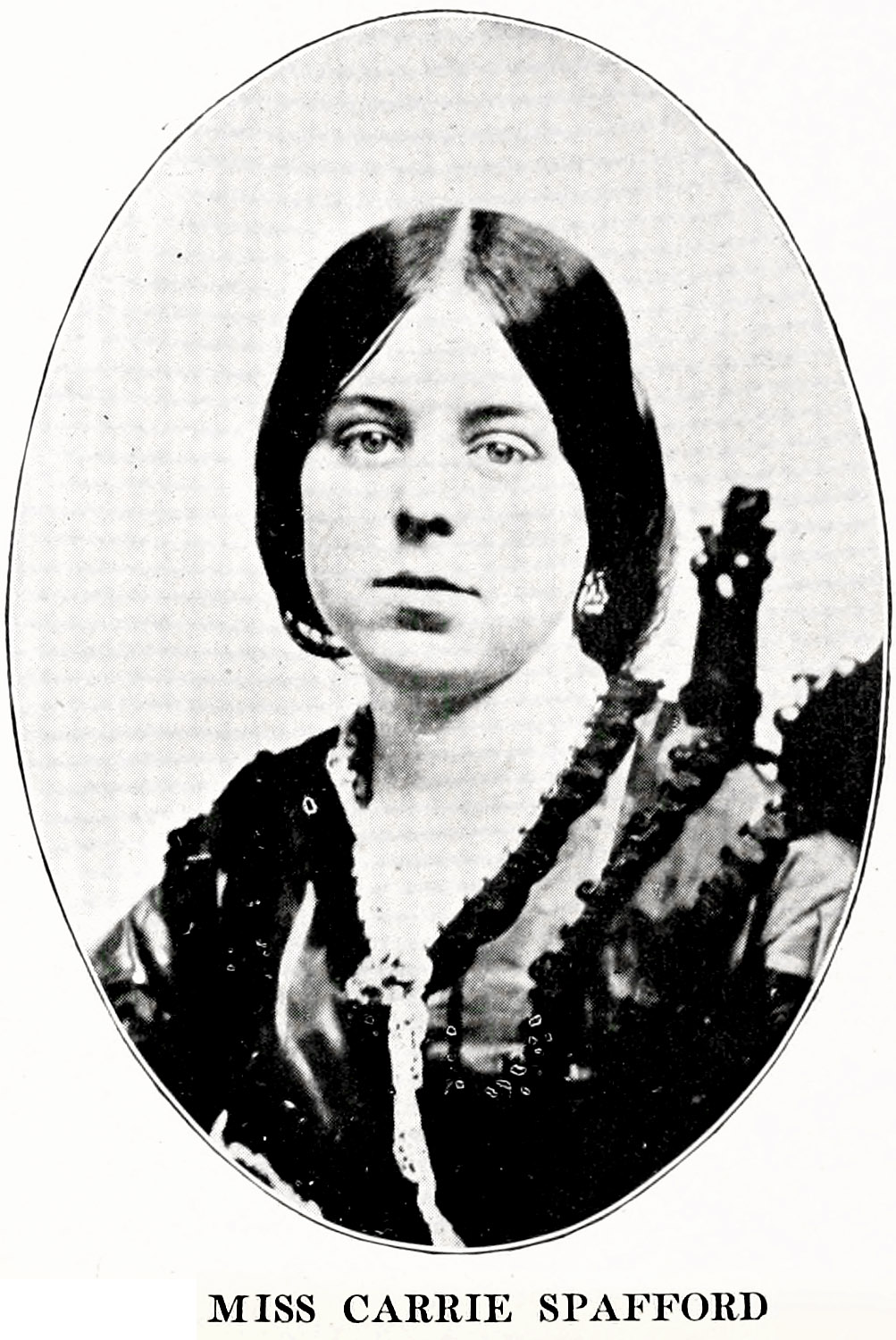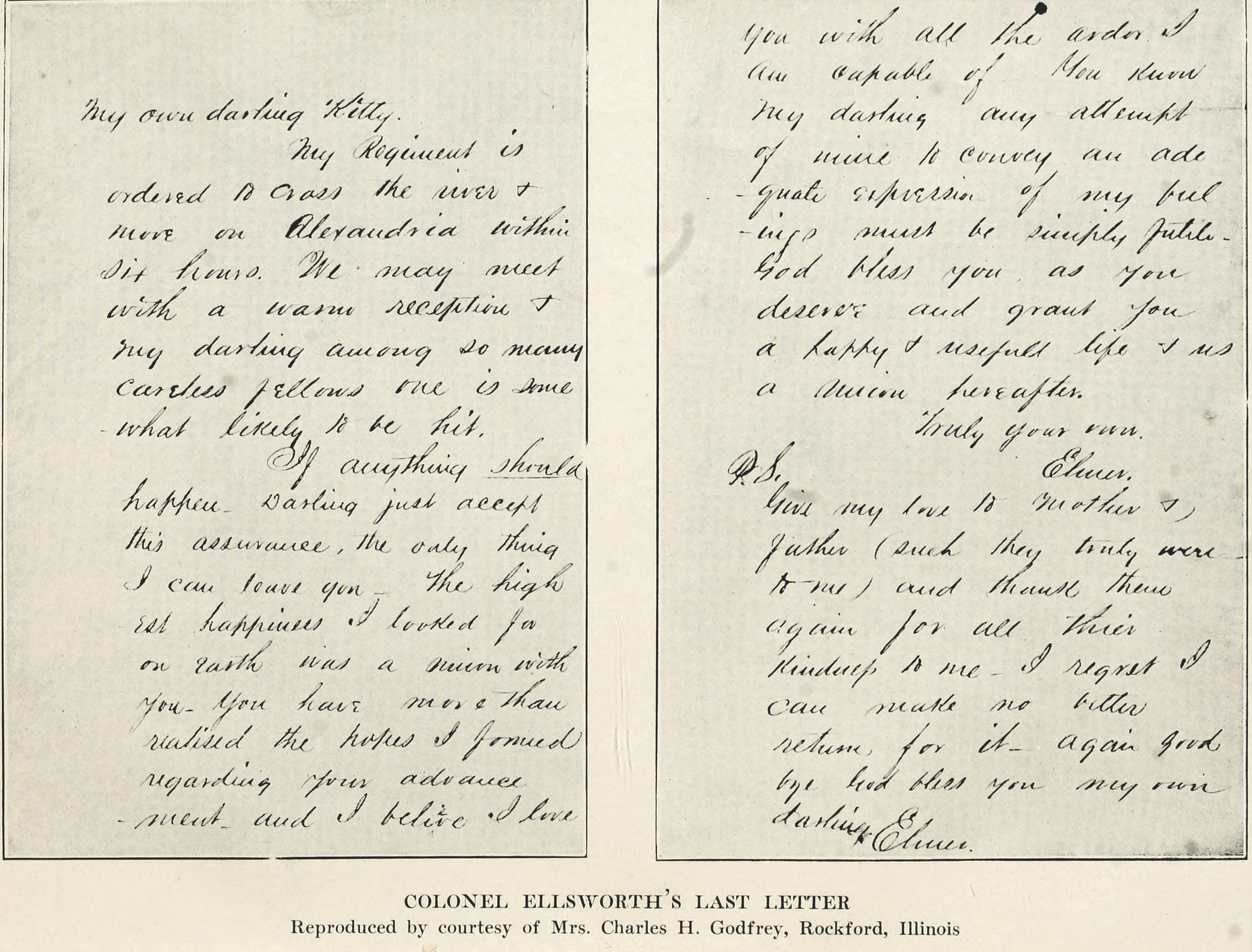
Ellsworth's Last Letter

My own darling Kitty.
My Regiment is ordered to cross the river & move on Alexandria within six hours. We may meet with a warm reception & my darling among so many careless fellows one is somewhat likely to be hit.
If anything should happen —Darling just accept this assurance, the only thing I can leave you — The highest happiness I looked for on earth was a union with you — You have more than realised the hopes I formed regarding your advancement — And I believe I love you with all the ardor I am capable of— You know my darling any attempt of mine to convey an adequate expression of my feelings must be simply futile — God bless you, as you deserve and grant you a happy & useful] life & us a union hereafter.
Truly your own,
Elmer.
P. S.
Give my love to mother & father (such they truly were to me) and thank them again for all their kindness to me — I regret I can make no better return for it—Again Good bye. God bless you my own darling.
Elmer.
Charles Ingraham in Colonel Elmer E. Ellsworth: First Hero of the Civil War, 1918, writes:
On the evening of Thursday, May 23, the regiment was ordered to be ready to move at a moment's notice, and at 2 o'clock A. M. of the twenty-fourth marched from its camp and boarded the steamers James Guy and Mount Vernon. In the bustle and stress incident to the departure, the busy Colonel found time to write two remarkable letters: one to his parents, the other to Miss Spafford, his fiancée. They breathe a presentiment of death and were found (at least the former, and I think the latter) upon his body. The letter addressed to Miss Spafford has not appeared before in print and has been read by but a limited number of persons. Colonel Ellsworth's last act before leaving his tent was to look at her portrait and place it in his bosom.3
3The letter to Miss Spafford is owned by her sister, Mrs. Charles H. Godfrey, of Rockford. The letter to Ellsworth's parents has been published in photographic reproduction in the Photographic History of the Civil War edited by Frances T. Miller (New York, 1911, 10 vols.) I, 351.